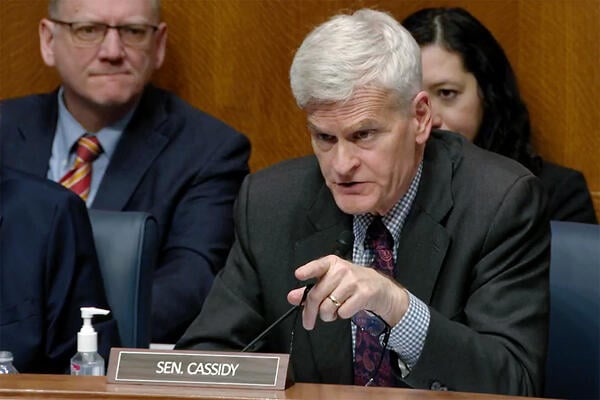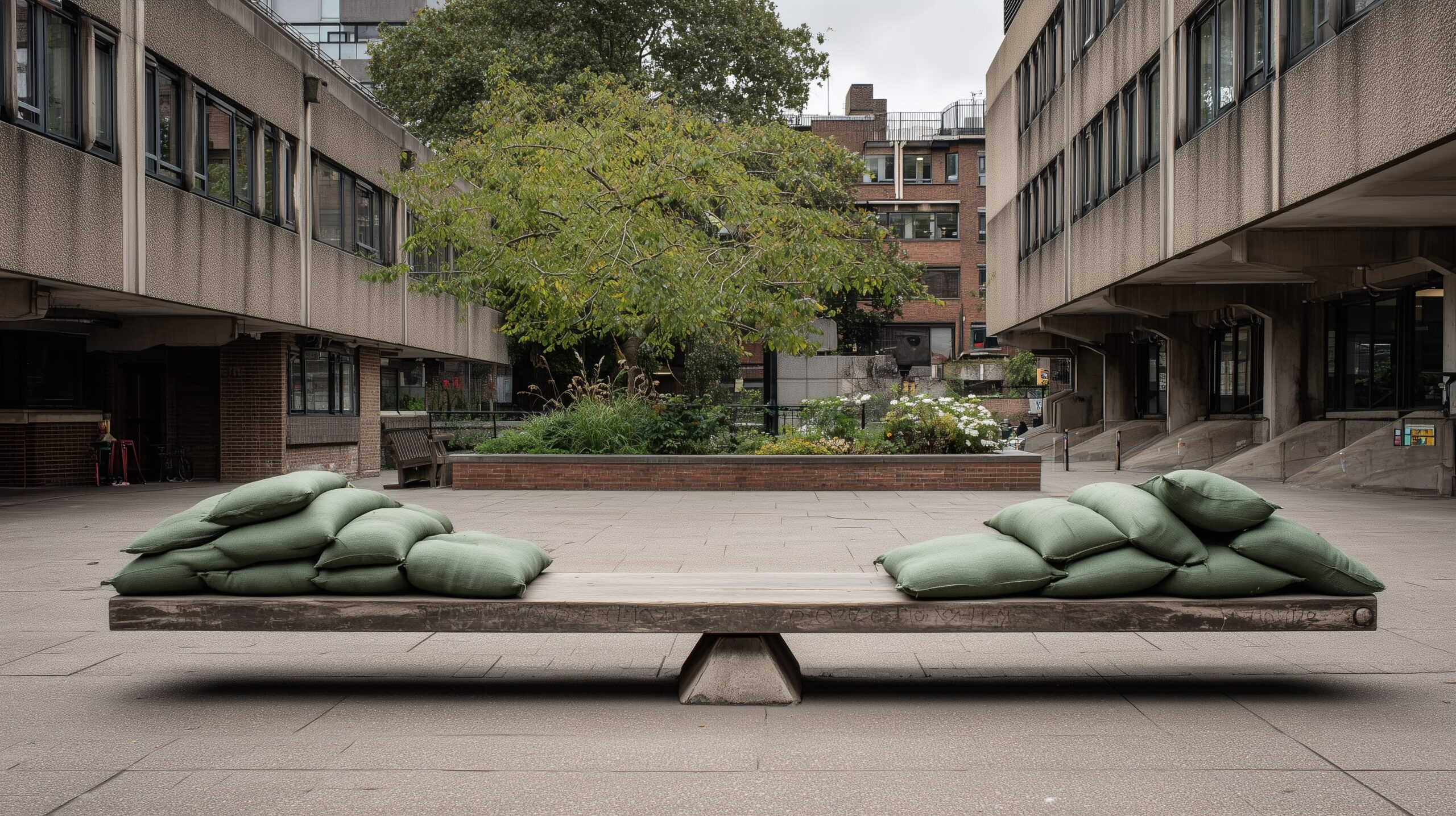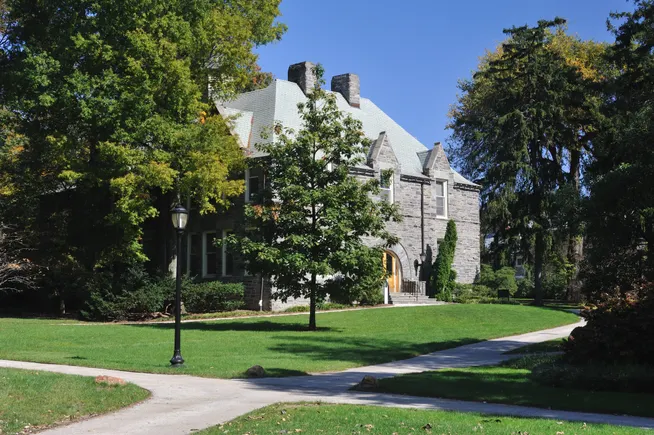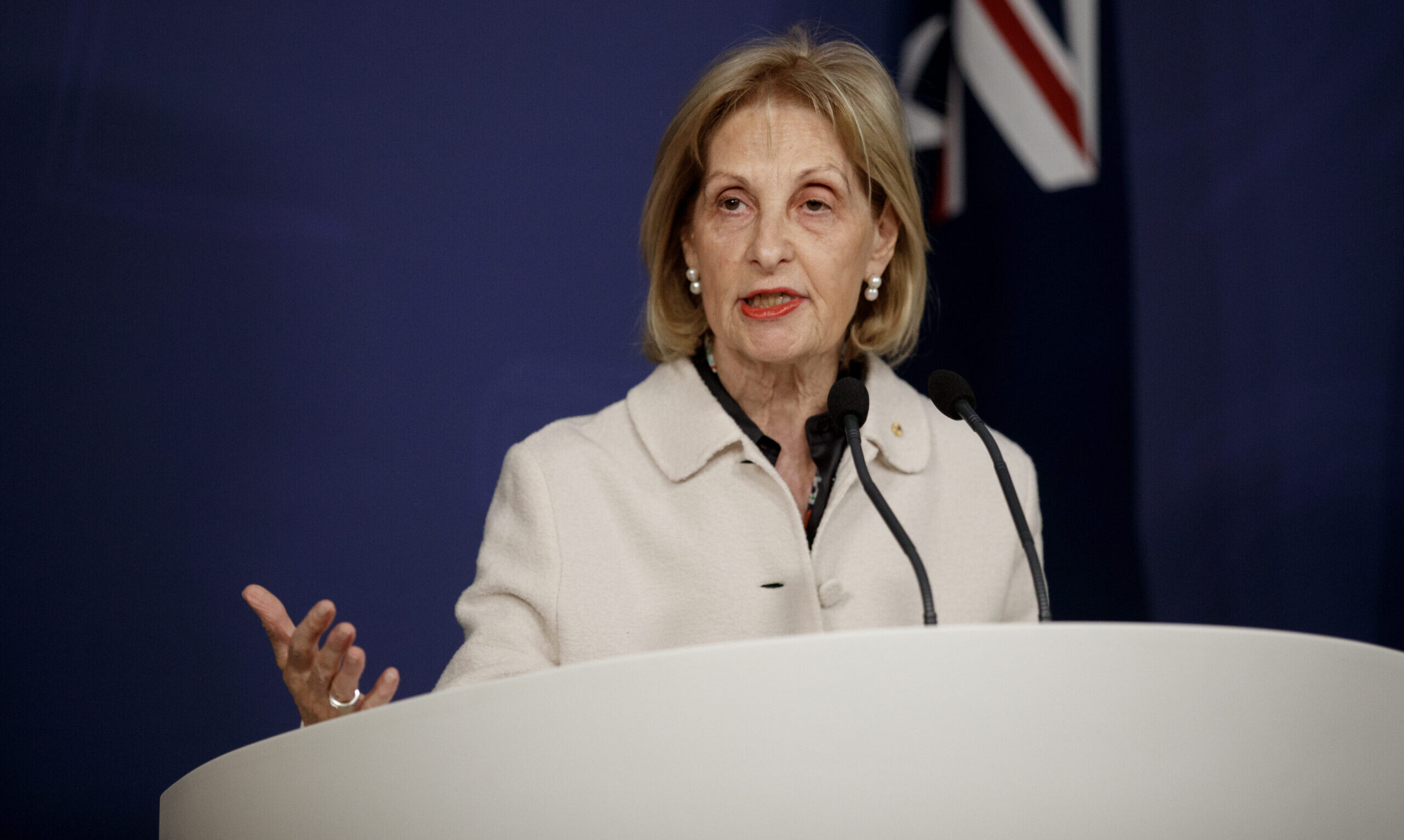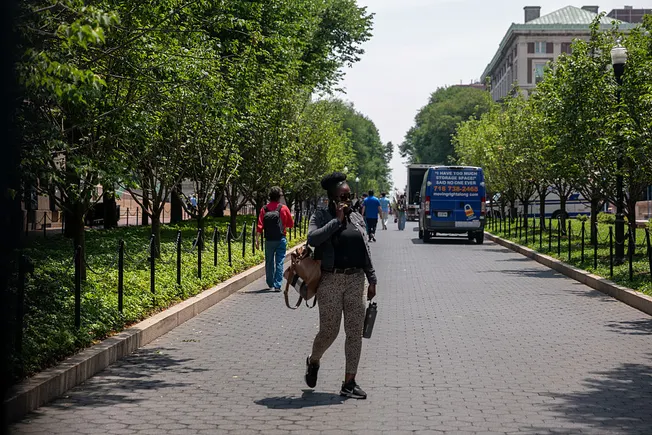For humanities faculty, the past five years have felt like a relentless assault on our ability to do our jobs. We have endured COVID, generative AI, budget cuts, and bitter fights over the Oct. 7 Hamas attack and Israel’s war on Gaza. At times it has been a challenge to remain human, let alone humanistic: to calm the nervous system enough to read a book, refine an argument, or show up for our colleagues and our increasingly fragile students. Now we are facing the Trump administration’s effort to gut-renovate our universities under the pretext of “combatting antisemitism.” With local enablers paving the way, that destruction may yet succeed.
In February of this year, a few colleagues and I co-founded a group called Concerned Jewish Faculty & Staff (CJFS), which now has more than 200 members on more than two dozen campuses. Our group, which is predominantly made up of academics at Massachusetts colleges and universities but includes members from across New England, is one of several such efforts nationwide that have coalesced into a new National Campus Jewish Alliance. We recognize that Jewish safety is inseparable from the safety of all people, and we work to foster academic environments that reduce antisemitism by treating educators as partners, not as suspects. I’d like to share a few examples of what this looks like in practice.
Fearmongering Versus Tea
As a Jewish professor of Arabic at Boston University, I mentor students with many different identities: Arab, Jewish, both or neither. After Oct. 7, 2023, I watched them struggle to metabolize the horrors in Israel and Gaza. They identified with various “sides” of the Palestinian-Israeli conflict; what they shared was a sense of helplessness and a hunger for facts and insights beyond those found on Instagram. They needed contact with solid reading material, with trusted adults and, above all, with each other. My colleagues and I were in pain too. By mid-October, a few of us began meeting to discuss how to nurture a respectful and humane campus climate for ourselves and our students.
As we looked around for helpful approaches, we noticed one very unhelpful one: Keep people constantly triggered so their brains can’t process new information or perspectives.
Instead of trying to lower the temperature after Oct. 7, one influential institution on our campus immediately began stoking fear of antisemitism. On Oct. 18, they sent out an email telling students to record and report all instances of “antisemitism and anti-Zionism.” They encouraged students to submit videos and screenshots of their classmates. They conflated antisemitism and anti-Zionism, strongly implying that criticism of Israel’s government threatened the identity and even the safety of Jewish students at BU. They ignored the inconvenient facts that a great proportion of anti-Zionists at BU are Jewish and that nationwide, plenty of Israel supporters are antisemitic. Even worse than this bad-faith conceptual stew was the subtext. We know you’re scared. We know you feel everyone hates you. Although this university has 4,000 Jewish undergraduates, you’re basically alone and unsafe here. But don’t worry; we have your back. This gaslighting maneuver only stoked the anxieties it purported to calm.
What my colleagues and I did instead was much smaller in scale. Four tenured humanities professors (all moms, as it happened) started gathering students for tea. We chose to work together because we did not agree about what was happening or should happen in the Middle East, but we respected and liked each other. Each of us personally invited a few students, for a total of about 12 per gathering. This was not an advertised event but a series of private teas. My colleagues brought concerned Muslim and Arab students, liberal Zionist students, and eventually some leaders of BU Students for Israel and the Hillel. I invited Arabic learners from various backgrounds and some pro-Palestinian students I knew, including some leaders of Students for Justice in Palestine. (Others, who had been doxxed, were scared to come.) We brought substantial and slightly awkward snacks, things like pistachios, clementines and pomegranates to keep people’s hands busy. We sat around in armchairs, more conversation circle than summit meeting. And we made one ground rule: For these 90 minutes you can’t talk about the region, which we can’t fix, but only the BU campus, which we share.
When we passed a timer around the room, giving every student and faculty member 60 seconds to say what was on their minds, everyone heard at least one thing they didn’t expect. One male Jewish student who sometimes wore a kippah and sometimes didn’t told of how differently people looked at him in those two situations. The Muslim women—hijab-wearing or not—understood. As trust grew, students felt comfortable asking each other questions like, “Why do people tear down posters of Israeli hostages?” or “Why did your group blast disco music over our die-in?”
The last tea occasioned two tiny breakthroughs. One student suggested BU’s “Jewish trustees and donors” were blocking the student movement to divest from Israel. Really? Together we checked the website: In fact, two of our most senior trustees are Arab. The student was taken aback, changing her view without ever being accused of antisemitic bias; everyone learned something. Later, a Palestinian student asked a pro-Israel Jewish student what the word “Zionism” meant to him. He began defining it, starting with “the right of the Jews to have self-determination in their ancestral homeland, Eretz Yisrael.” As she looked confused, he blushed and stammered, using more Hebrew words she didn’t understand. Finally he stopped: “I’m sorry, I’ve never had to explain this before. I’ve always been in Jewish schools or camps or Hillel or places where everyone just understood what Zionism means.” The conversation moved on. The next day he and his roommate came to my office to worry that he had not “represented his side” well enough; we talked for an hour; I assured him that he represented only himself, a student trying to learn and figure out what he believed. I doubt his politics changed, but the moment of aporia made everyone more human. When CJFS organized a Freedom Seder the next April, both he and his roommate came.
Administrators have asked us how to scale up this effort. My long-term hope is to train students and colleagues to be peer educators in their own networks. But it would need to start small, with faculty and staff who trust each other. There are no shortcuts.
Policing Versus Conversing
Such efforts may soon be complicated by a harmful state-level effort by the politicians and legacy Jewish groups who make up the Massachusetts Special Commission on Combatting Antisemitism, which was established by the state legislature in 2024 and has been touted as a model for other states.
The Commission furthers a nationwide plan to advance a program of what is fair to describe as “Don’t Say Palestine” policies. It aligns with the Anti-Defamation League’s (ADL) state-by-state Jewish Policy Index, which calls for such commissions, and follows the exact playbook of the Israel advocacy group ICAN (the Israeli-American Civic Action Network), which aims to bring hyperlocal pro-Israel advocacy to cities, towns and school boards, especially in blue states. A Massachusetts state senator has praised ADL CEO Jonathan Greenblatt for encouraging the establishment of the commission; ICAN has boasted of its influence on the process.
One reason our group, Concerned Jewish Faculty & Staff, has grown so fast is that everyone can see the Trump administration weaponizing antisemitism to attack universities and degrade civil rights. But another reason is anger at this state-level commission right here in our beloved Massachusetts, which has taken its eye off actual antisemitism and focused instead on policing discourse about Israel.
The Commission conflates Jewishness with Zionism, pushing the incoherent and dangerously vague International Holocaust Remembrance Alliance (IHRA) definition of antisemitism and other sloppy ideas. But a deeper problem is its punitive approach, which focuses on policing a boundary of what is and isn’t antisemitic. In its 13 months of hearings, the Commission has modeled the punitive approach by attacking educators, publicly haranguing the (Jewish) president of the Massachusetts Teachers Association (MTA) for two hours last February over some materials on an MTA website. In its final report, released in November, the Commission aims to institutionalize the punitive approach by creating a mechanism through which members of the public can report “problematic curriculum” in K-12 schools, as well as an anonymous reporting system for suspected acts of bias in K-12 schools “which may not rise to the level of a hate crime.” If adopted in any city or town, these measures will create an unpedagogical climate where teachers are afraid to teach and students hesitate to speak up in class: No one wants to be reported as an antisemite, even if the charge is disproven later. At best, such a climate will only drive anti-Jewish bias underground; at worst, because schoolchildren and college students are sensitive to hypocrisy, it will spark resentment and feed an anti-Jewish backlash. Several Concerned Jewish colleagues have written movingly on this commission’s dangers; CJFS has released a Shadow Report detailing its faulty assumptions and missteps.
The question is what to do instead. What is a humane, pedagogical response to rising tensions and the ambient normalization of bigotry in all forms? Again, learning can happen only in an environment of respect and trust.
Let’s take an example of casual classroom antisemitism. In March 2024, my Core Curriculum class was reading Foucault and discussing the Panopticon surveillance regime. When the talk turned to Internet culture and public discomfort with social media, one normally tuned-out student suddenly piped up: “The Jews want to ban TikTok. They’re against its pro-Palestine content.” The Jews. Because we all automatically love Israel and hate free speech? Luckily, I was the teacher; I could explain why it was incorrect to say some entity called “the Jews” either wanted or were able to control social media. I could cite a 2020 Pew research poll saying 41 percent of Jewish Americans are emotionally unattached or weakly attached to Israel. (Among secular Jews, that figure is 67 percent.) I could point out that the great majority of Israel’s U.S. supporters are not Jewish at all: One Evangelical lobby group, Christians United for Israel, claims ten million members, 2.5 million more than the total number of Jews in America. If this discussion happened today, I could cite a survey from The Washington Post finding that about 4 in 10 American Jews believe Israel has committed genocide in Gaza. And because I feel safe in my classroom—because my university does not endorse the conflation of Jewishness with Zionism—I could personally vouch that many Jewish people disavow nationalism altogether.
Now, let me share an example of misperceived classroom antisemitism from my 40-person general education course, War in Arabic Literature and Film. The course confronts some difficult material set in Iraq, Syria, Lebanon and Israel-Palestine. We learn how war can harden sectarian identifications and gender roles. We read some American and Israeli authors as sidelights. We do a lot of social-emotional scaffolding and role-taking; students sit in small discussion groups, and I collect exit notes.
One student, a self-described “proud Zionist,” was a wonderful presence in the course’s fall 2024 first run. But one day she was crying after class, and her exit note said: “I loved this course and was about to recommend it to all my Jewish friends, but now I can’t, because I feel today’s discussion was antisemitic.” That day’s session had focused on Ari Folman’s Waltz with Bashir, a stunning Israeli film about Israel’s 1982 invasion of Lebanon, paired with a student presentation on Edward Said’s classic essay, “Permission to Narrate.” (Incidentally, Waltz violates the IHRA definition of antisemitism, comparing the Sabra and Shatila massacre to Auschwitz.)
I caught up with my student and we talked for an hour in the street and in my office. Raised to sincerely experience criticism of Israel as antisemitic, she felt hurt by the student presentation. I did not try to tell her about Edward Said’s humanistic outlook, deep empathy for Jewish victims of the Holocaust, or anything else. Instead, trusting her seriousness and troubled by her distress, I suggested: What if she was upset not by the reading material, but by the frame? Would she have preferred me to assign the Said essay as a primary source to analyze rather than an authoritative secondary source for a presentation? She said yes, that would be different. I offered to revisit that part of my syllabus the following year, empowering students to talk back to Said if they wished. She contributed enthusiastically to class for the rest of the semester.
I am so grateful that this brave young woman shared her concerns with me rather than running to a dean, a “problematic curriculum” hotline, or a politico-religious organization, as students are being urged to do. By talking to each other honestly like intelligent adults, we both learned something.
These experiences have convinced me that policing “antisemitic” speech about Israel is not only unjust but deeply counterproductive: it breeds suspicion between well-meaning people, making it harder for us to unite when genuine neo-Nazism rears its head. You can’t stamp out antisemitism, fear of Palestinians, or any other prejudice; only slow heart-changing conversations can melt it away. So, to foster a campus climate of real inclusion, we need to convene and converse, not record and report. The details are tricky, but teachers and students can figure them out together. Our administrations and governments just have to give us the respect, job security and academic freedom to do so.



